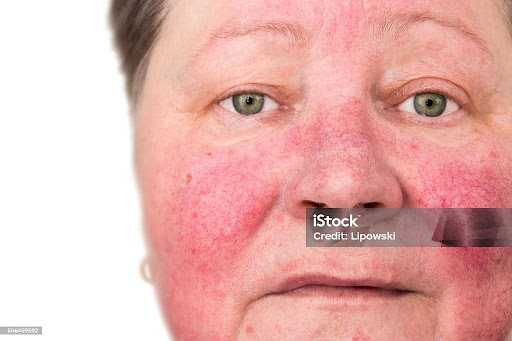
Hello, Lions! This week, we delve into the often-misunderstood world of rosacea—a common skin condition causing flushing, redness, and various symptoms on the face. Often mistaken for acne or dermatitis, rosacea presents unique challenges for those affected.
Leah Terry, senior marketing major at Georgia State University, shares her journey with rosacea, and the struggles she faced. Terry said “rosacea for me has always occurred on my face, making me skin flush red and itchy all the time. My environment has always been one of the biggest triggers involving my Rosacea”.
Triggers for rosacea can range from environmental factors like sunlight and wind to hot drinks, spicy foods, alcohol, and emotional stress. The skin may become hot and tender, and some may experience Ocular Rosacea, characterized by dry, irritated, swollen eyes and eyelids. In more severe cases, Rhinophyma can occur, which is a thickening the skin on the nose. It’s crucial to note that seeking professional advice is key for proper diagnosis and management of rosacea.
Rosacea doesn’t have a known cure, but management through medication and gentle skincare is possible. The causes of rosacea remain elusive, with factors like genetics, an overactive immune system, or daily life impacts potentially playing a role. It’s important,to note that rosacea is not linked to poor hygiene, and it’s not contagious.
Rosacea is known to be a common skin condition, Terry stated that she had never heard of rosacea until she was diagnoses with it at the age of 12. Growing up in Douglasville, Georgia the weather tended to be very bipolar, causing me to have triggers for rosacea. Leah said that “the total medical cost of treating rosacea is normally around $165 million, for an average of $102.26 per treated patient. Which in turn makes it really hard to get treated for rosacea”. In 2013, the costs associated with the treatment and lost productivity among those who sought medical care for rosacea was $243 million. More than 1.6 million people sought treatment for rosacea in 2013.
Using a fragrance-free moisturizer can help control the flare up of Rosacea. When asked what she used to control her flare ups, Terry stated that drinking enough water to stay hydrated can help her skin from drying out.












